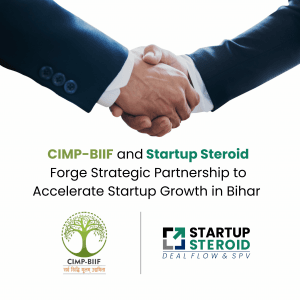In the ever-changing realm of entrepreneurship, obtaining funding is a crucial milestone for startup companies. Yet, the journey to attract investors is full of challenges. Entrepreneurs require a holistic solution to simplify the investment process to navigate this intricate landscape successfully. Introducing the Startup Deal Flow Platform – a revolutionary tool for investing in startups.
The need for efficient and organized channels for Investing In Startup Companies has become increasingly apparent.
A startup deal flow platform serves as a centralized hub that connects entrepreneurs with potential investors, offering a seamless and structured approach to funding for startup businesses.
Stages of Funding for Startups: How Does It Take Place
Before delving into the intricacies of a Startup Deal Flow Platform, it’s crucial to comprehend the different funding stages for startups. However, a compelling start-up pitch deck is vital before you start seeking funding from angel investors for your startup.
Angel investors don’t invest in a startup in one go. A startup funding goes through several stages, which we’ll explain below:
These typically include:
Pre-Seed Funding: Pre-seed funding refers to the initial financial support provided to a startup in its earliest stages, often before the product or service is fully developed or launched.
Purpose: The primary goal of pre-seed funding is to help the founders validate their business idea, conduct market research, and create a proof of concept. This funding covers initial expenses such as market analysis, feasibility studies, and early-stage development.
Seed Funding: Seed funding is the capital invested in a startup to further develop its business concept, create a prototype, or build a minimum viable product (MVP). This stage comes after the pre-seed phase and marks the product development and market entry transition.
Purpose: Funding for startup businesses begins with seed funding. As it is the first stage of angel funding for a startup. It enables startups to refine their business model, conduct more extensive market research, and produce tangible products or services.
This funding is vital for attracting early customers, obtaining user feedback, and establishing a foundation for future growth.
Series A, B, and C Funding: Series A, B, and C funding represent subsequent rounds of financing that a startup undergoes as it matures and scales. Each series signifies a different growth stage, and the funds raised are used for various purposes, such as expanding operations, entering new markets, and accelerating overall business growth.
Thus, there are several Funding Stages for Startups, and each of these is essential for all stakeholders.
Purpose:
Series A: This round typically follows successful seed funding and aims to scale the business. Funds may be used to increase market share, enhance product development, and build a solid customer base.
Series B: At this stage, the startup has likely proven its viability, and the focus shifts to expanding market reach and product offerings. Funding may be allocated to entering new geographical markets or acquiring complementary businesses.
Series C: When a startup reaches Series C, it is usually a well-established company seeking substantial capital to further accelerate growth, explore international markets, or prepare for an initial public offering (IPO).
What Is the Role of A Deal Flow Platform in a Startup Ecosystem?
It acts as a bridge between entrepreneurs seeking funding and investors looking for promising opportunities.
Here’s how it transforms the investing landscape:
Efficient Matching:Utilizing advanced algorithms, these platforms match startups with investors based on their preferences, industry focus, and investment criteria. It also plays a vital role in bringing your startup in front of the angel investors network. Several angel investors are connected with an angel network. When your startup’s visibility goes to that level, your chance of getting funded increases, too.
Access to Diverse Investment Opportunities: Investors gain access to many startup opportunities, diversifying their investment portfolios.
Streamlined Due Diligence: The platform facilitates a structured due diligence process, enabling investors to make informed decisions.
Preparing a Pitch Deck
A crucial component of the startup fundraising journey is the pitch deck. The Startup Deal Flow Platform often provides tools and templates to help entrepreneurs create compelling pitch decks. Make sure to build a customized pitch deck for investors, depending on their actual niches and what they seek.
These pitch decks visually represent the business, outlining its value proposition, market opportunity, and financial projections.
Connecting Entrepreneurs with Strategic Backers
Angel investors play a pivotal role in the early stages of startup funding. A dedicated deal flow platform often boasts extensive networks of angel investors, providing entrepreneurs access to experienced individuals who bring capital, valuable mentorship, and industry insights.
Conclusion
The advent of startup deal flow platforms marks a significant shift in how entrepreneurs secure funding, and investors discover promising opportunities. As the startup ecosystem evolves, these platforms are poised to play a pivotal role in fostering innovation, driving economic growth, and connecting visionaries with the capital they need to turn their dreams into reality. Embrace the future of startup investments – embrace the Startup Deal Flow Platform revolution.








